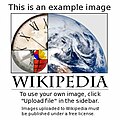User:Tapan3295/sandbox
Flat Cube* is an unconventional art form that blends together photography and body painting. From time to time it also includes installation and performance.
Traditionally mankind has painted on flat surfaces including walls of caves, canvas, paper and walls. And in doing so, they have more often than not, tried depicting reality. They painted on 2 dimensional surfaces and tried depicting 3 dimensional realities. There in fact is a legend, a version of an oft-told ancient Greek story concerns a contest between two renowned painters. Zeuxis (born around 464 BC) produced a still life painting so convincing, that birds flew down from the sky to peck at the painted grapes. He then asked his rival, Parrhasius, to pull back a pair of very tattered curtains in order to judge the painting behind them. Parrhasius won the contest, as his painting was of the curtains themselves. (see http://en.wikipedia.org/wiki/Trompe-l%27%C5%93il)
Flat Cube is the exact reverse. It involves painting not only on 3dimensional canvas, but in here the canvas is reality itself, which includes live human models, real props and the space. And the reality is optically compressed into a single plane. Photography is used to preserve the piece of work, as it involves live models. Photography also helps freeze the perspective. So if a viewer has to watch a work of Flat Cube live, he will have to stand at the sweet spot (where the camera has been placed).
-
Caption1
-
Caption2
Flat Cube is seen as an outcome of the love and hate relation that painting and photography have shared with the coming of the camera. They have seen phases in art history like photographic realism, the problem of nudity in photography, documenting the process of creating art that only became possible with the coming of photography and then in recent history before the coming of colour photography when people painted on top of black and white photographs. A few groups see Flat Cube as a silent protest against the increasing tilt of contemporary art world towards the 'digital alteration' and 'photoshop' like Liu Bolin does in his invisible painting (see http://en.wikipedia.org/wiki/Liu_Bolin)
- its a name given for convention by Shisir Basumatari and Nayan Gogoi.


